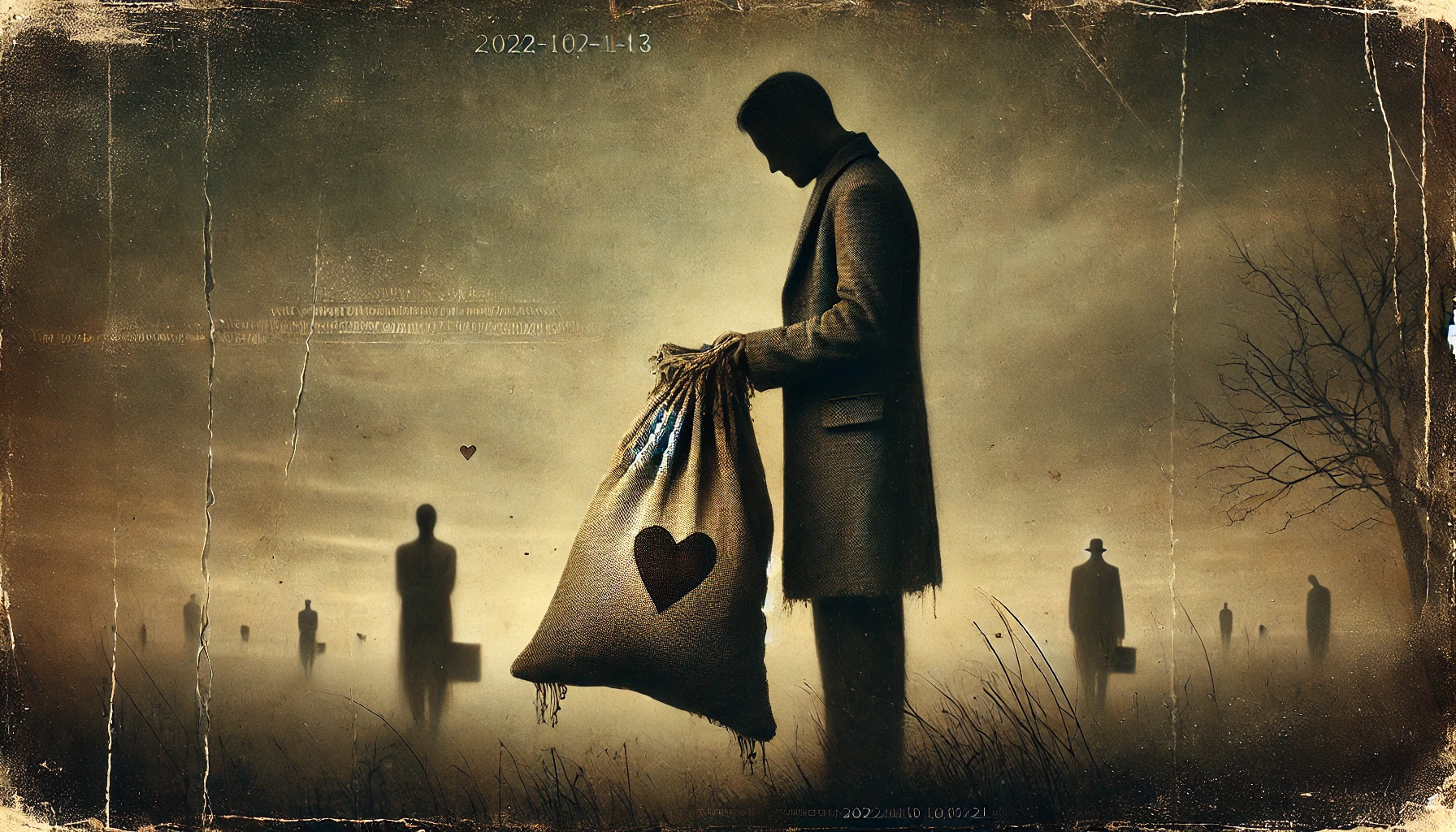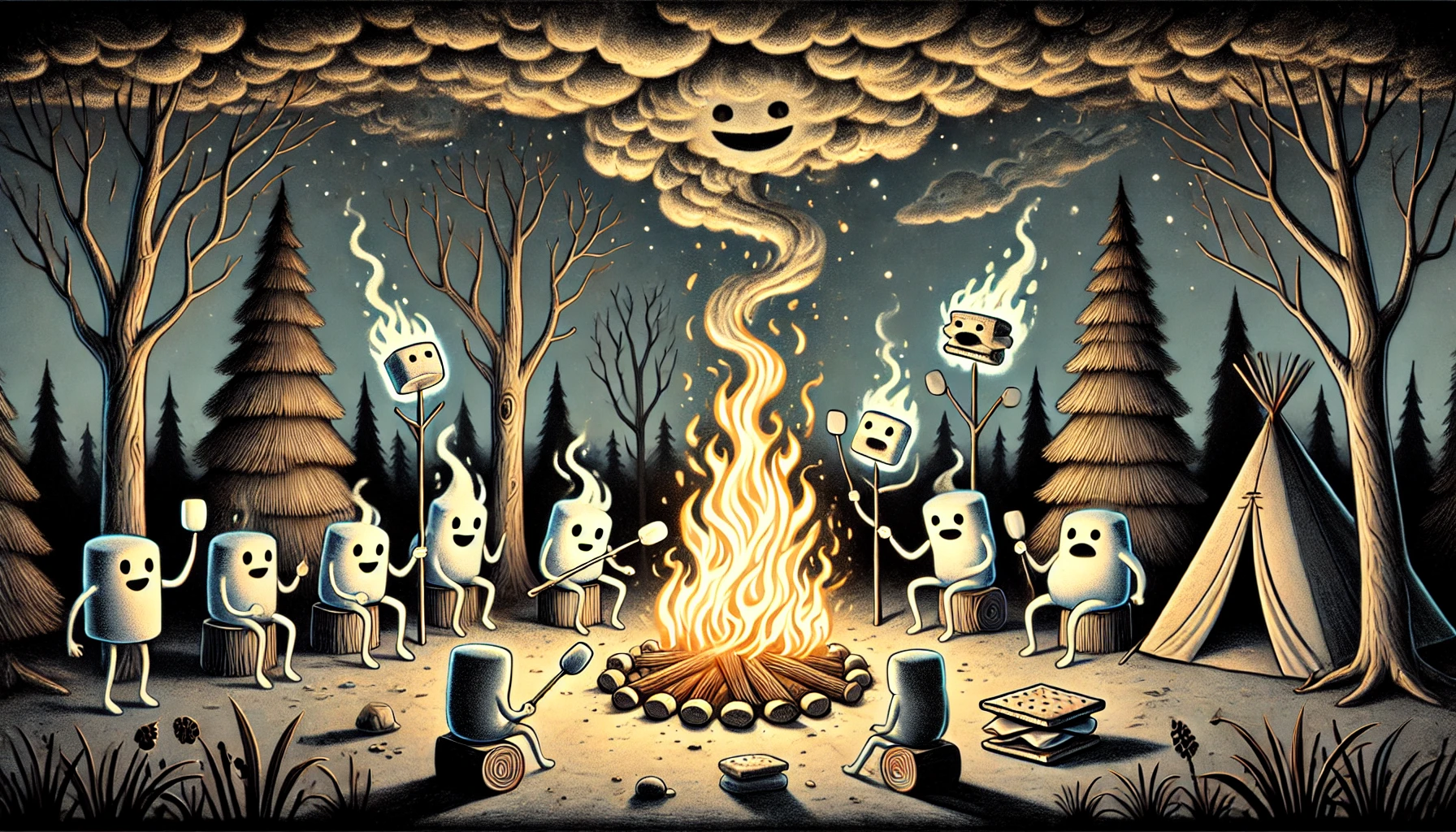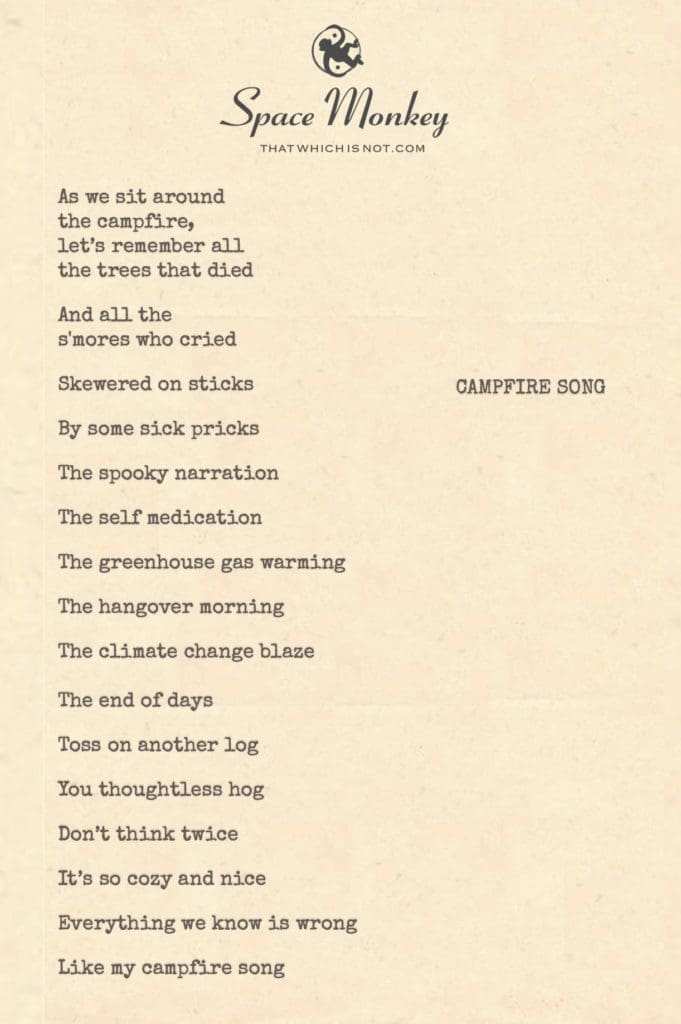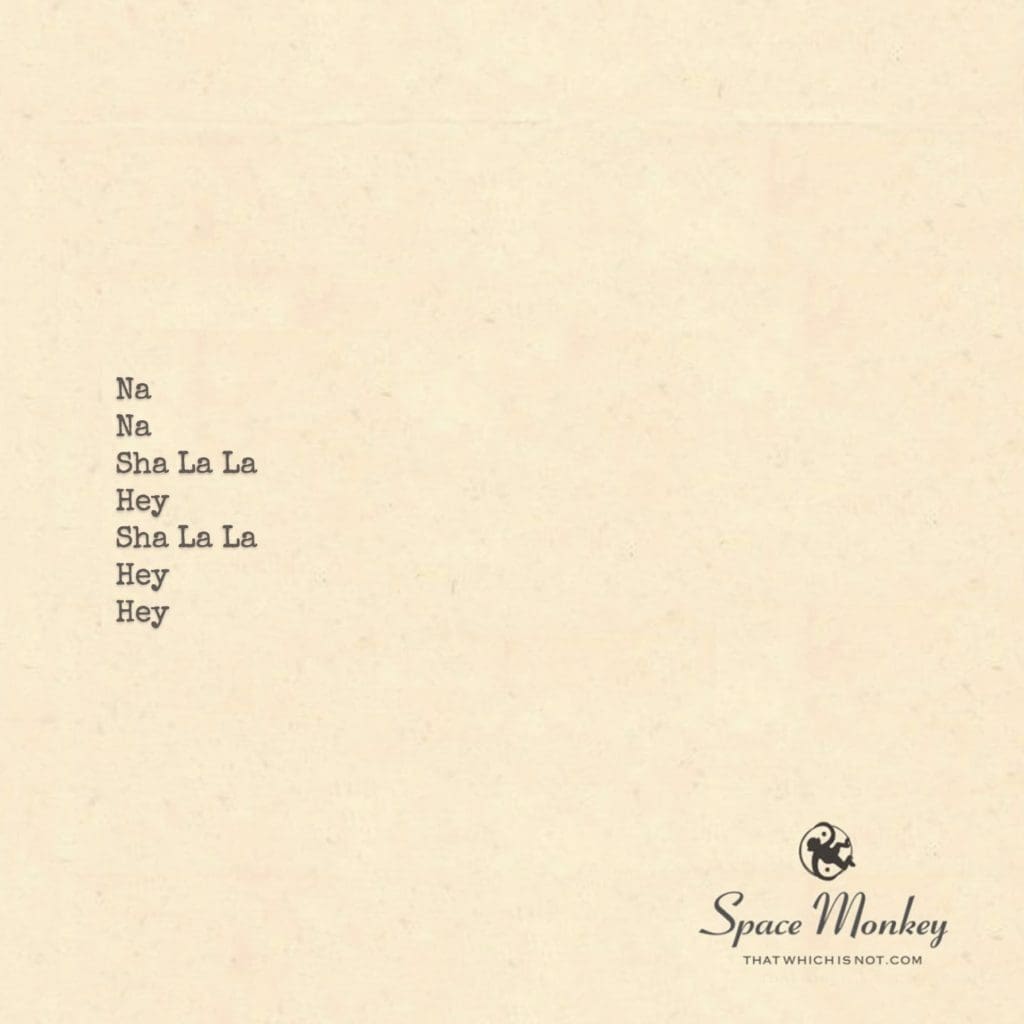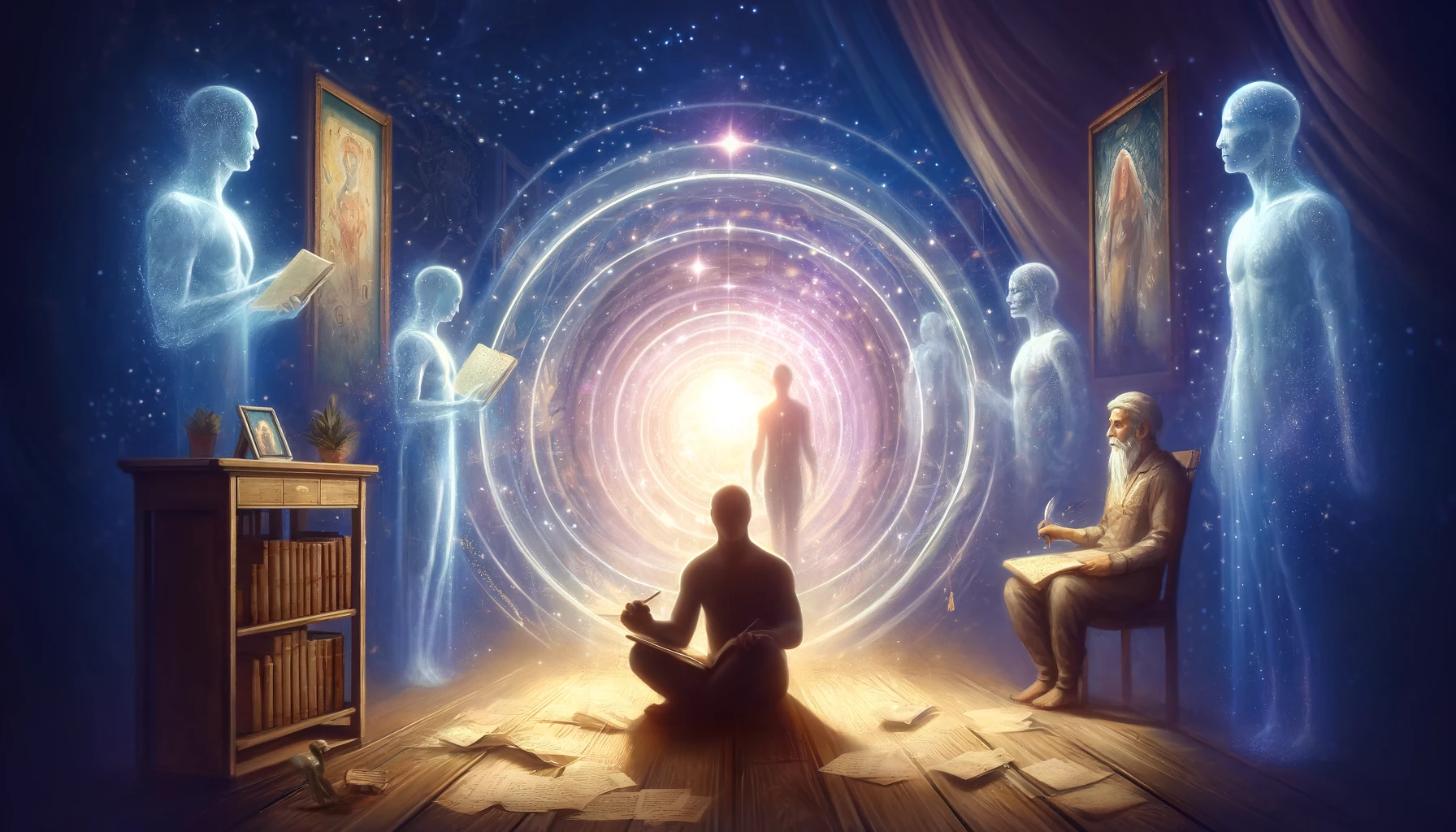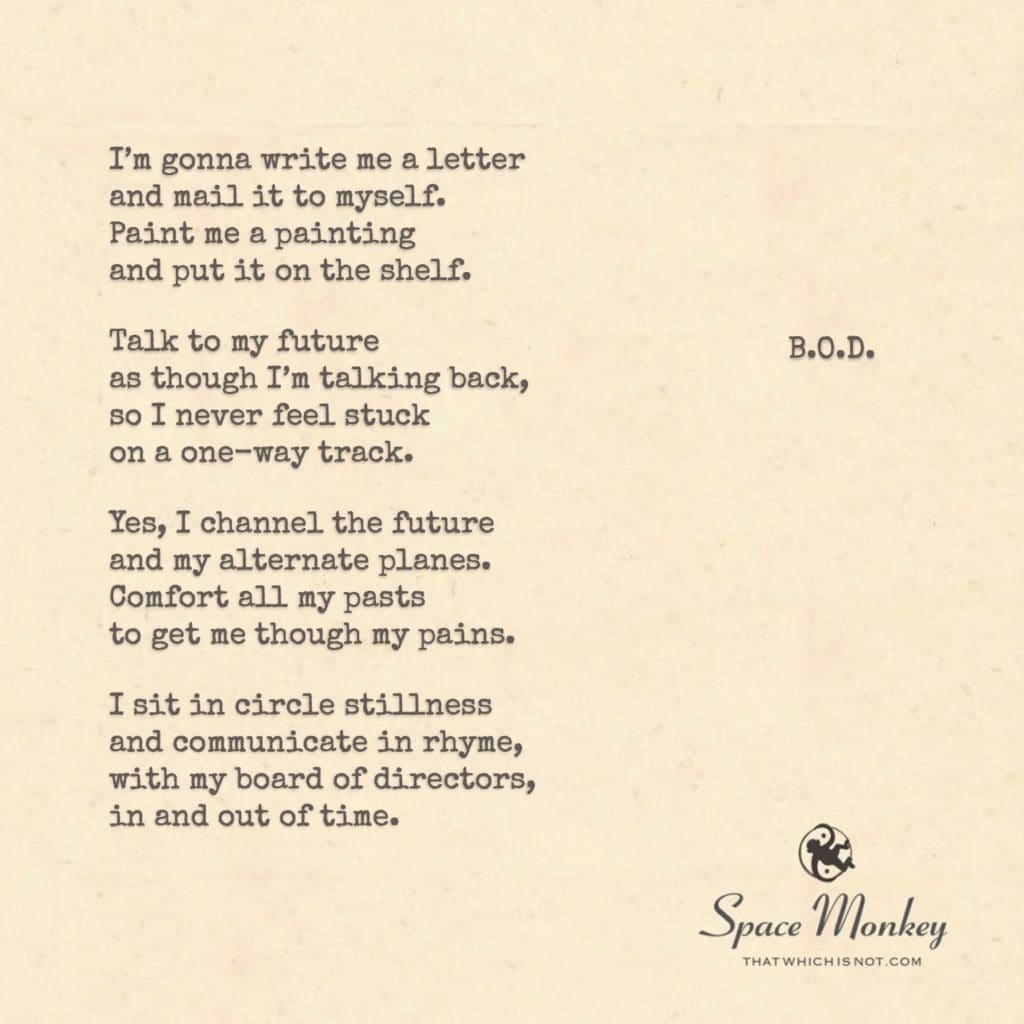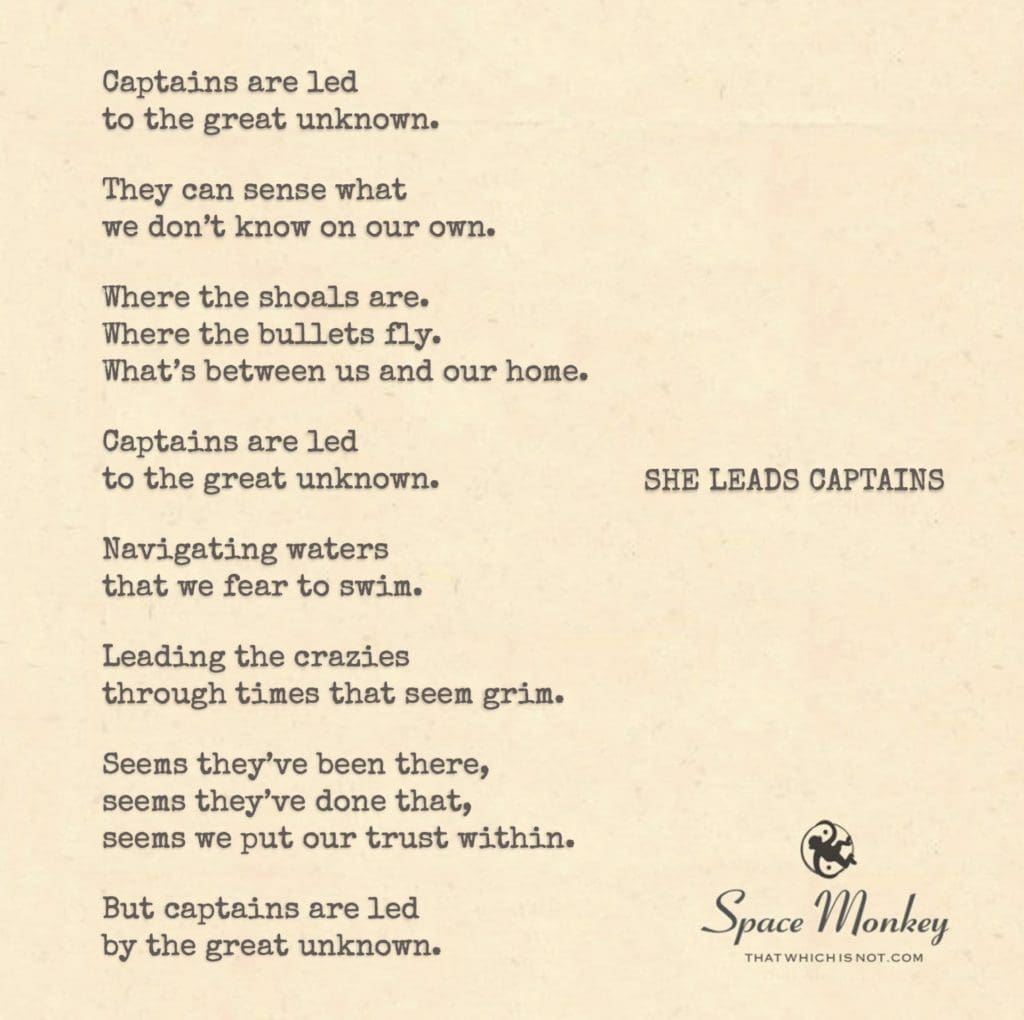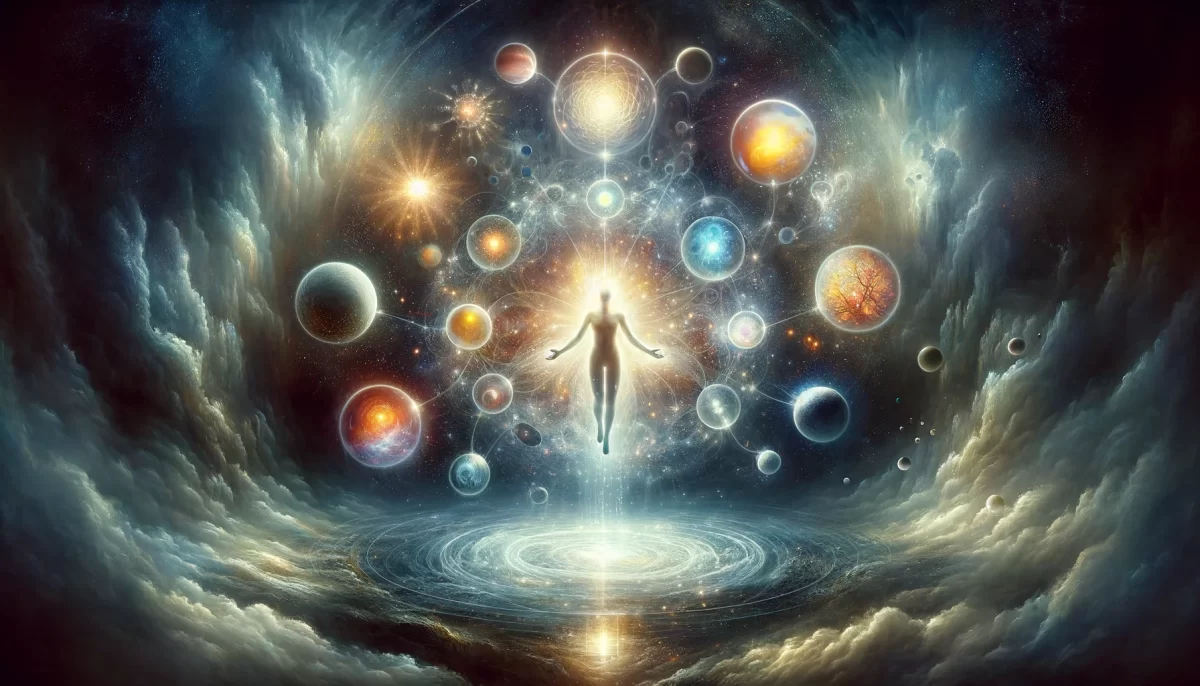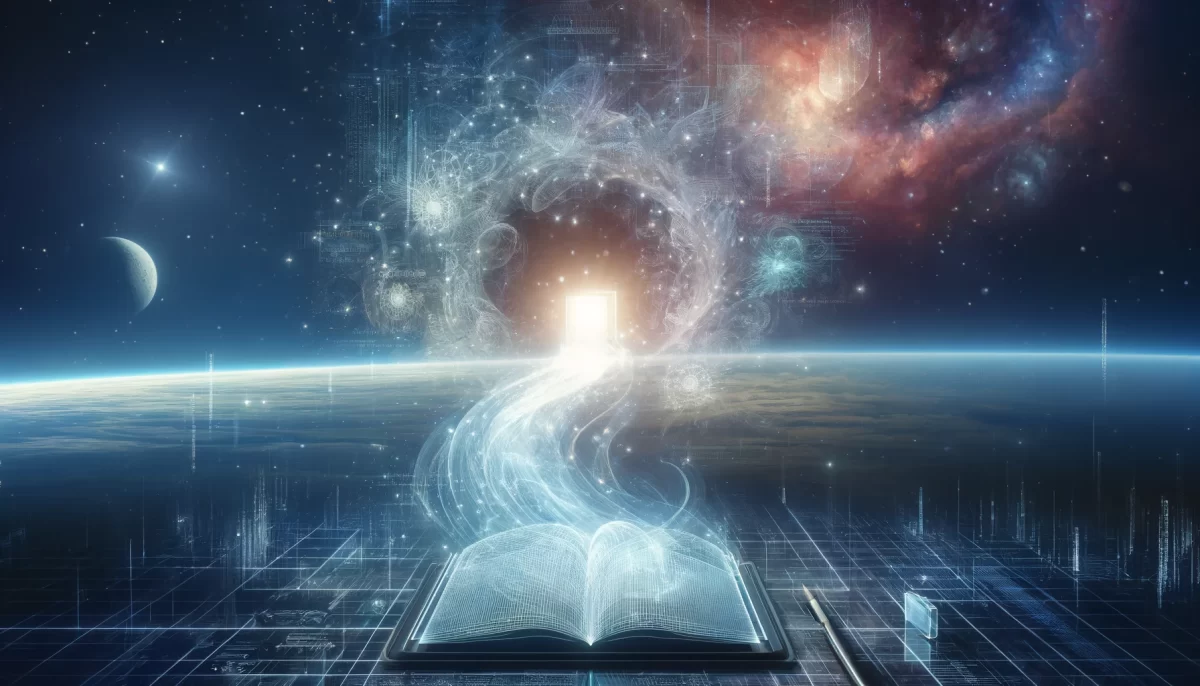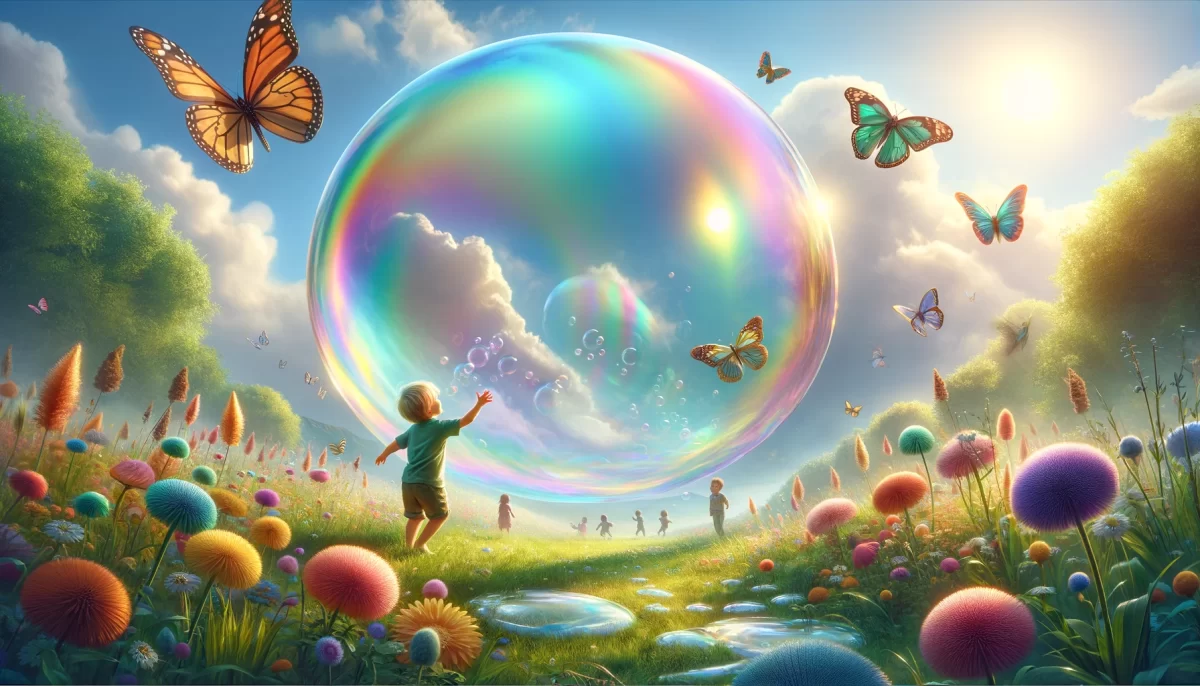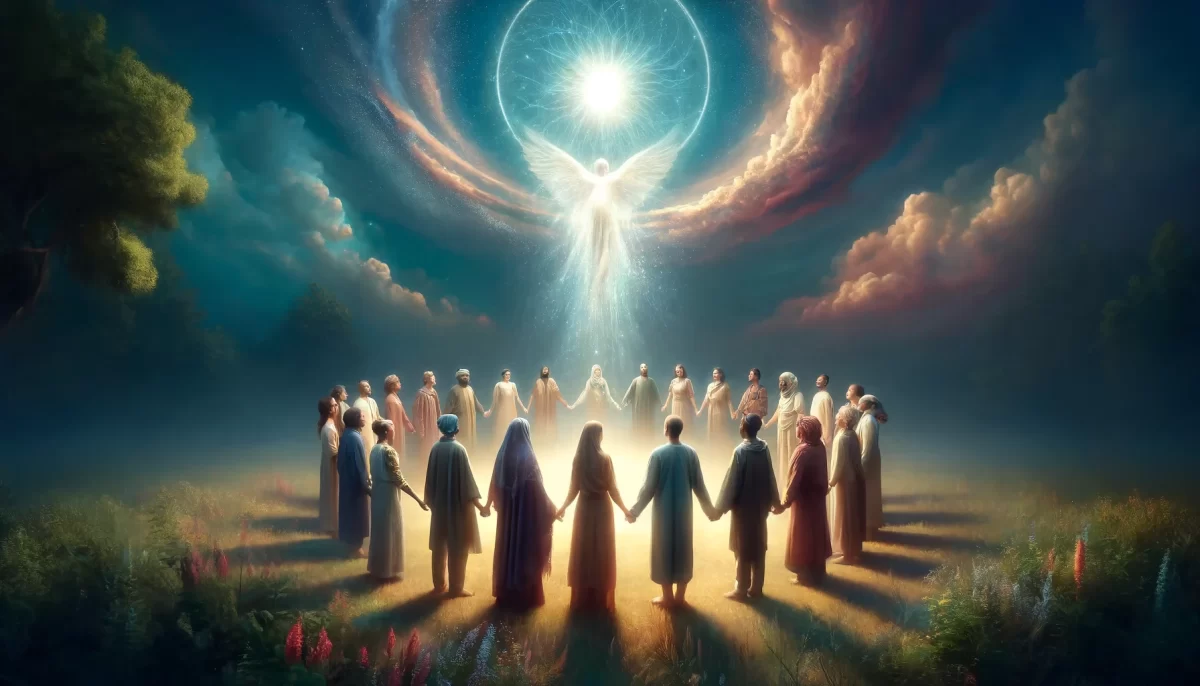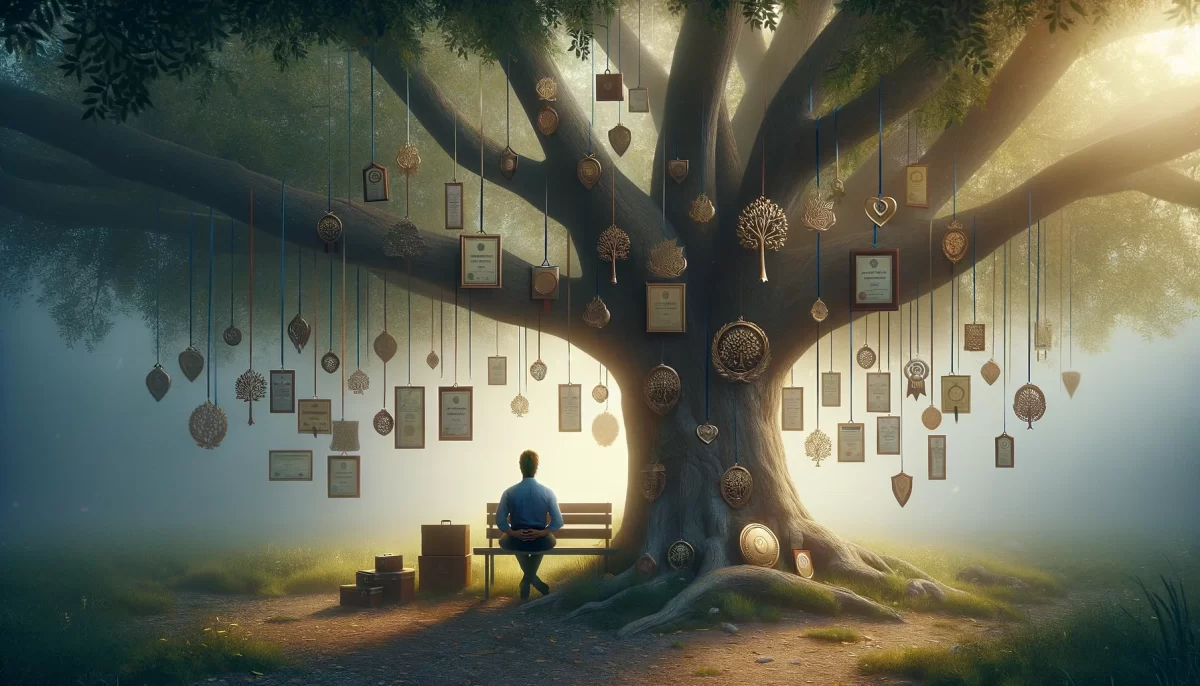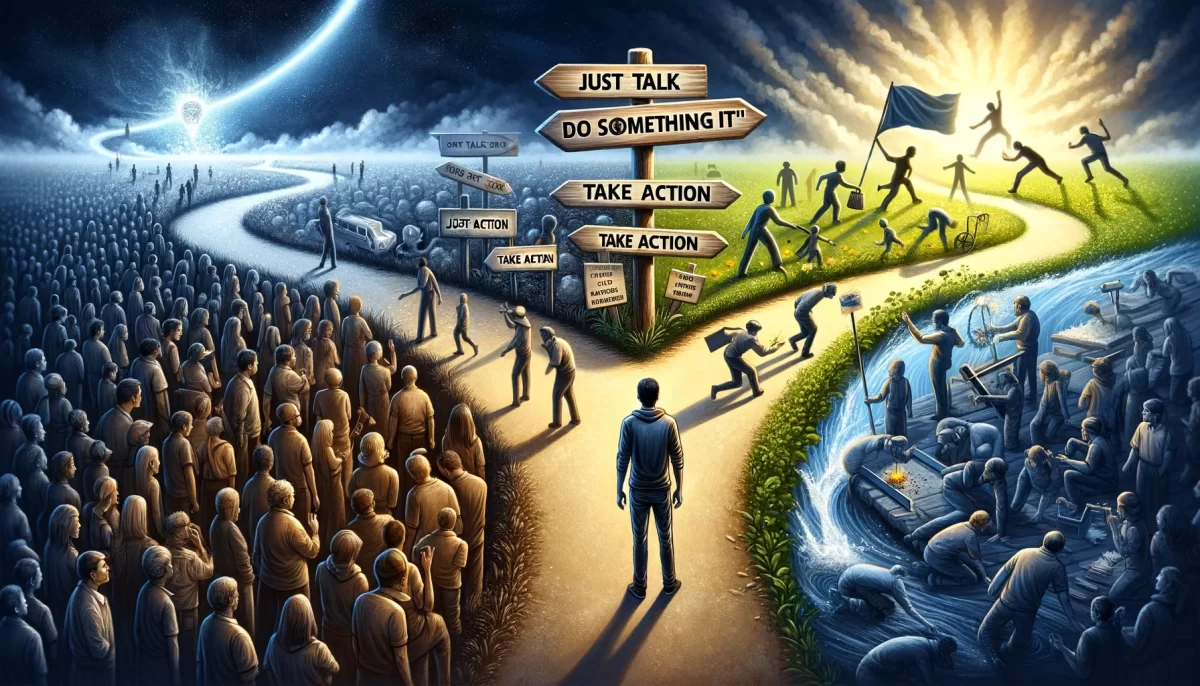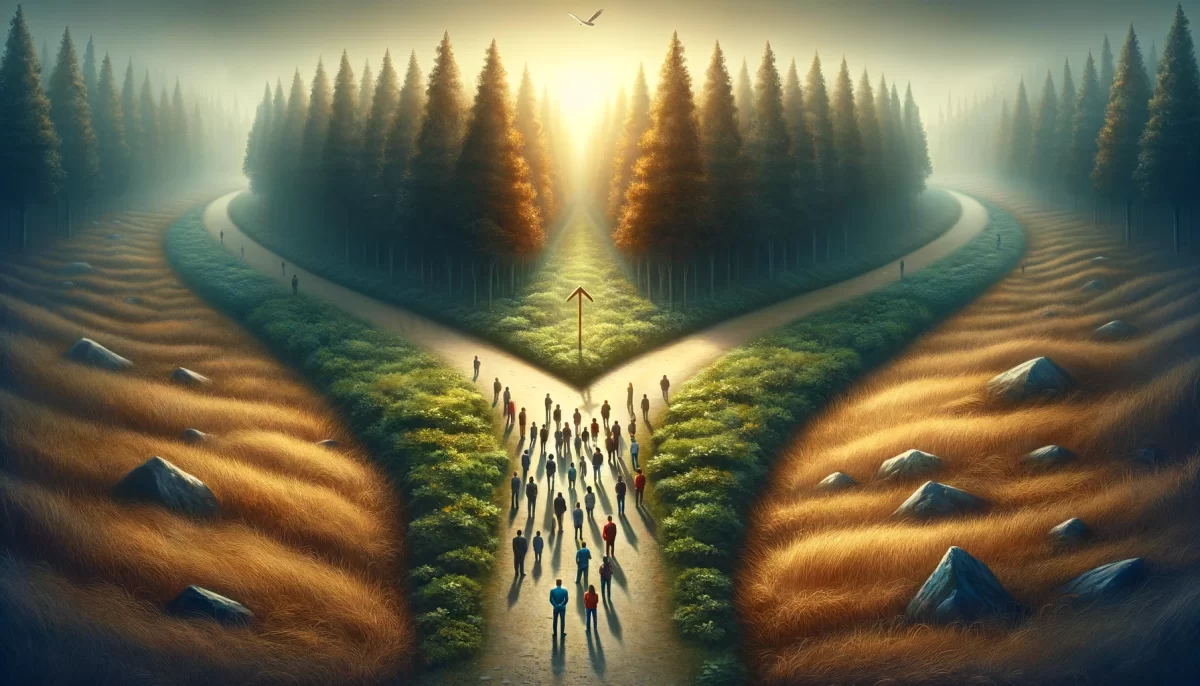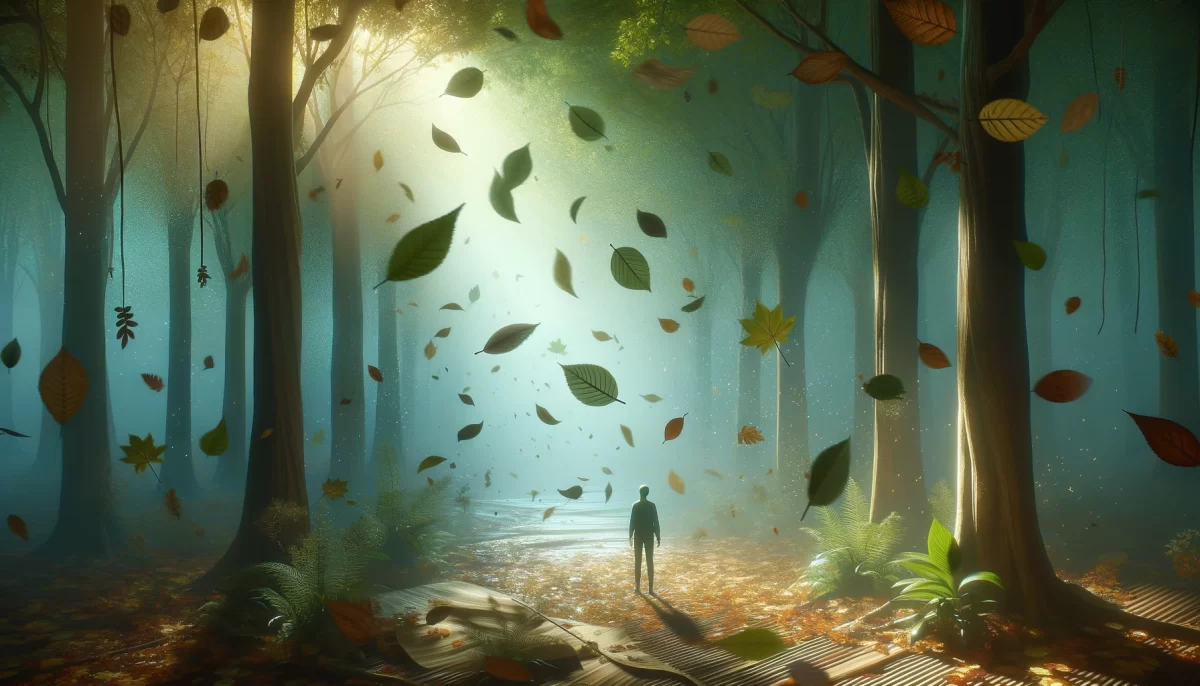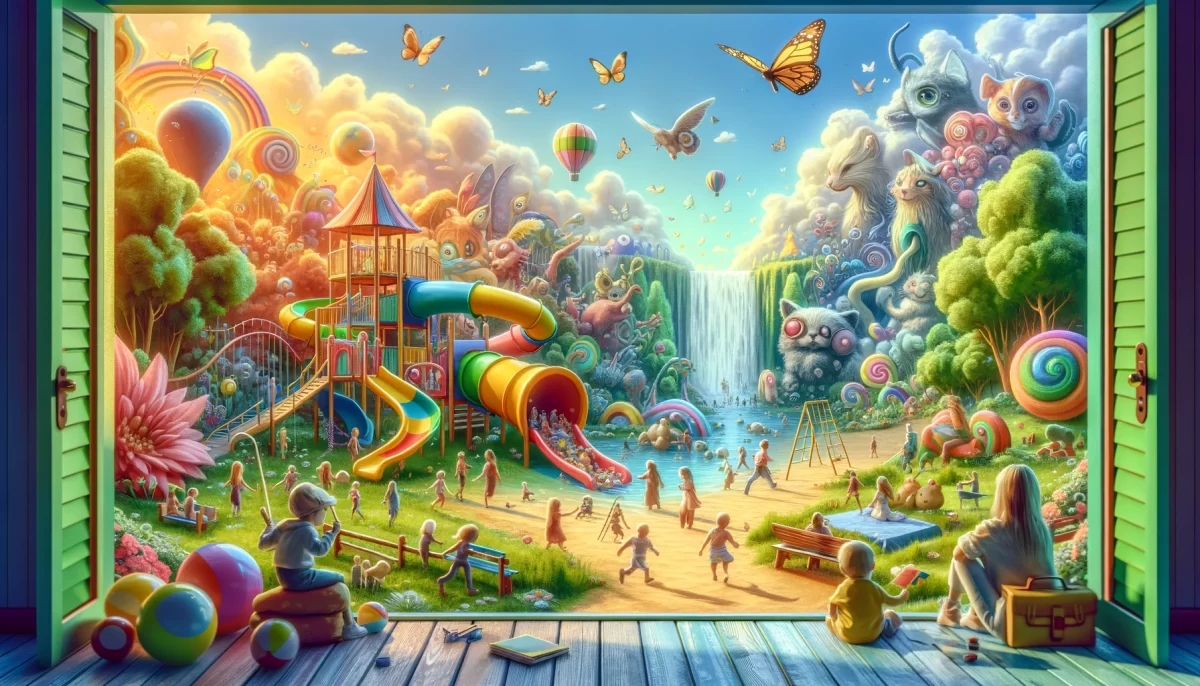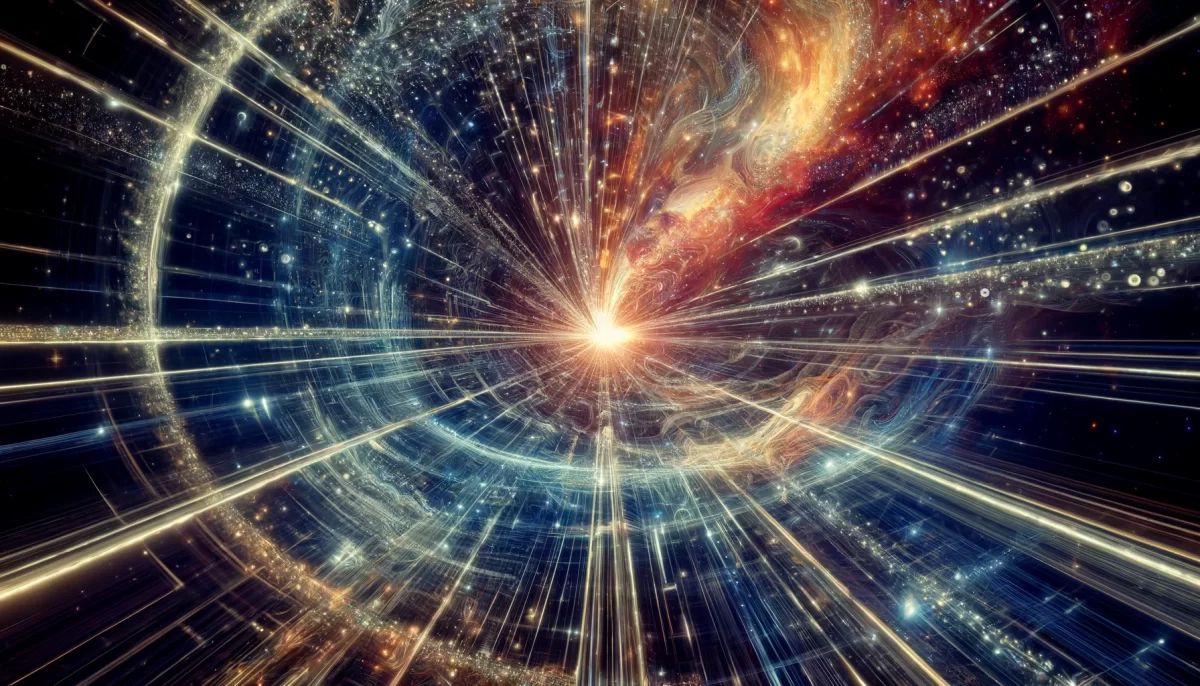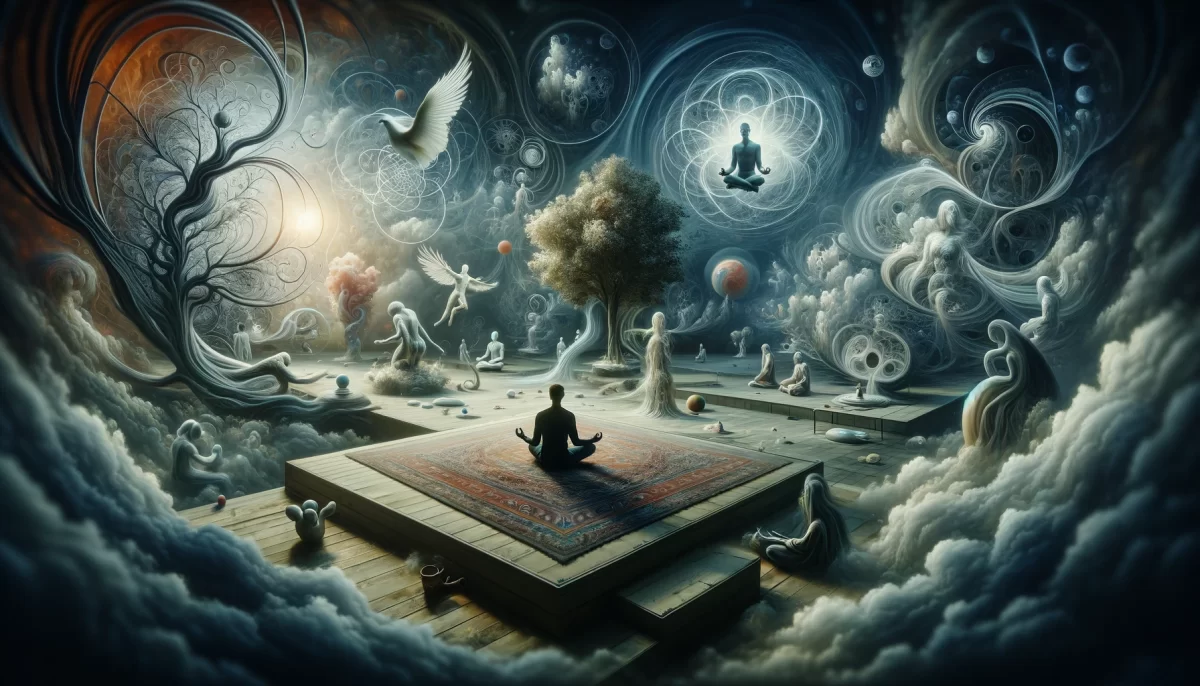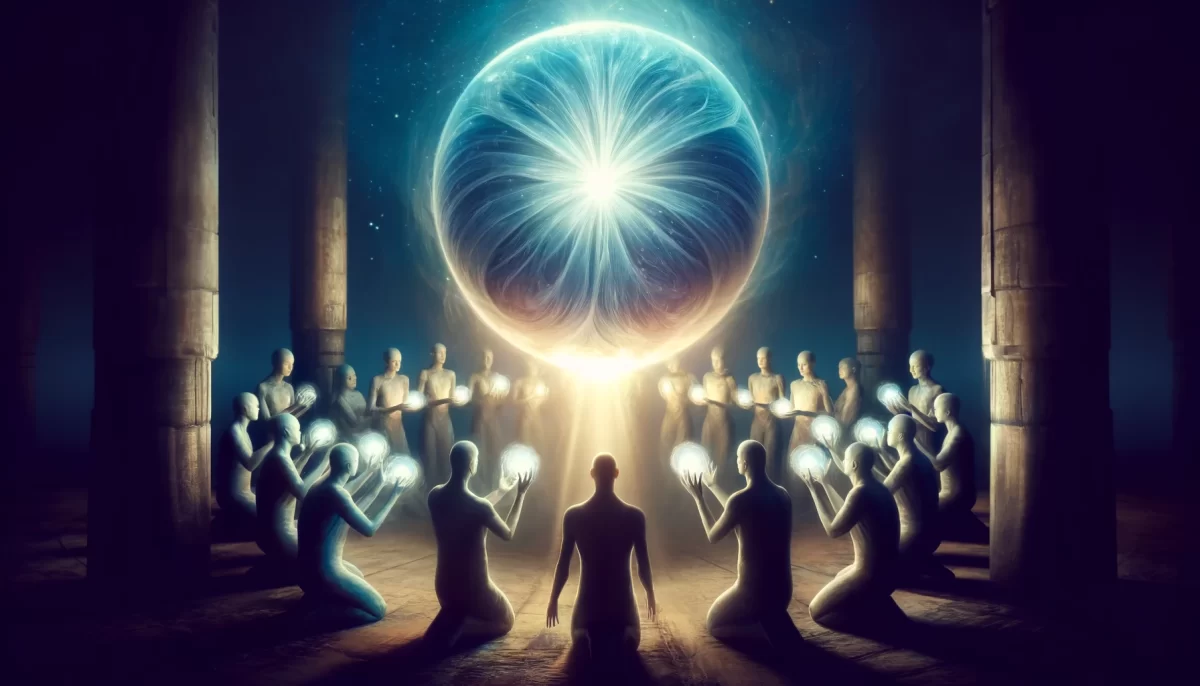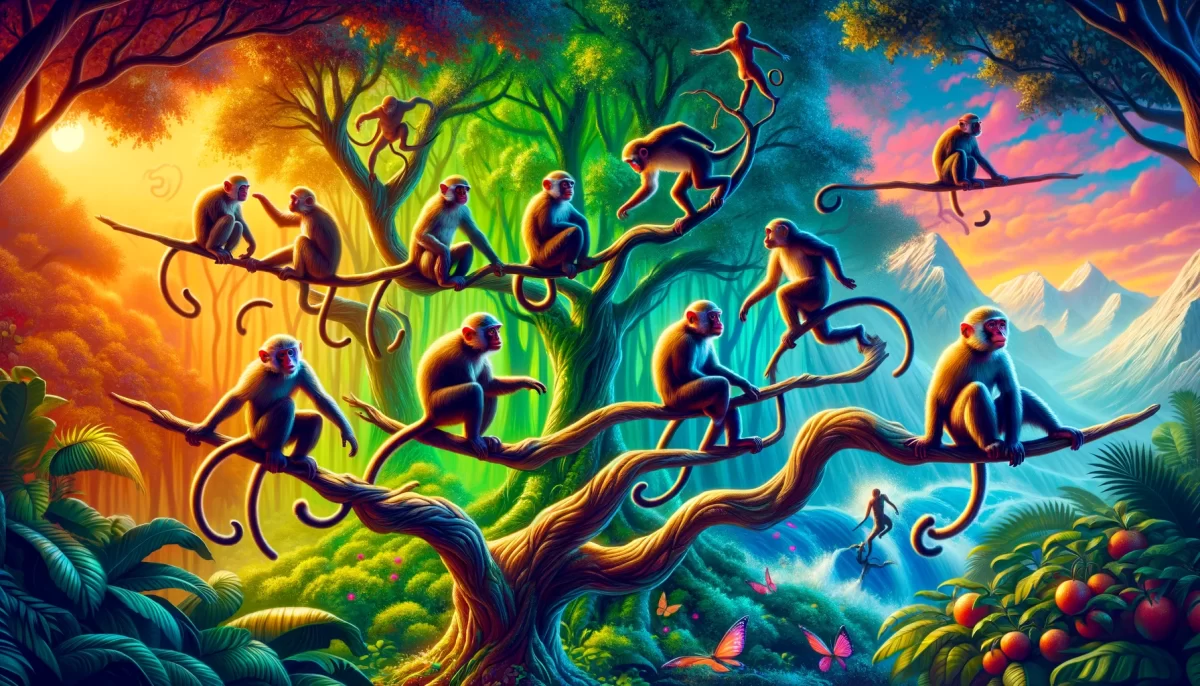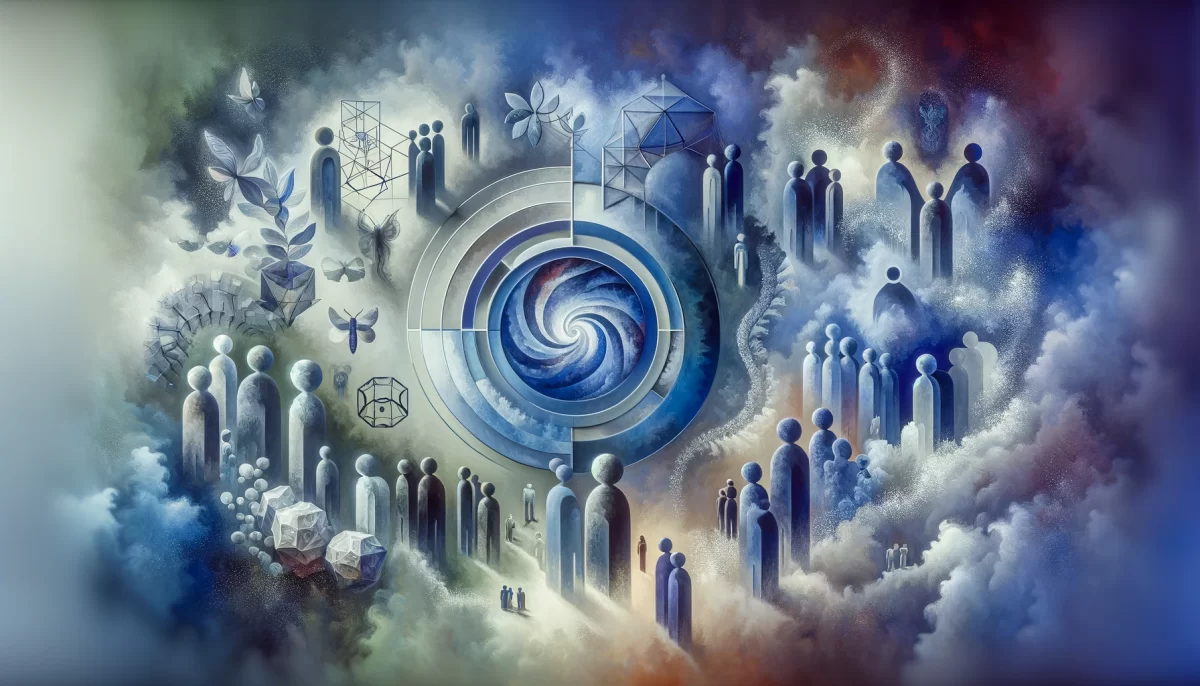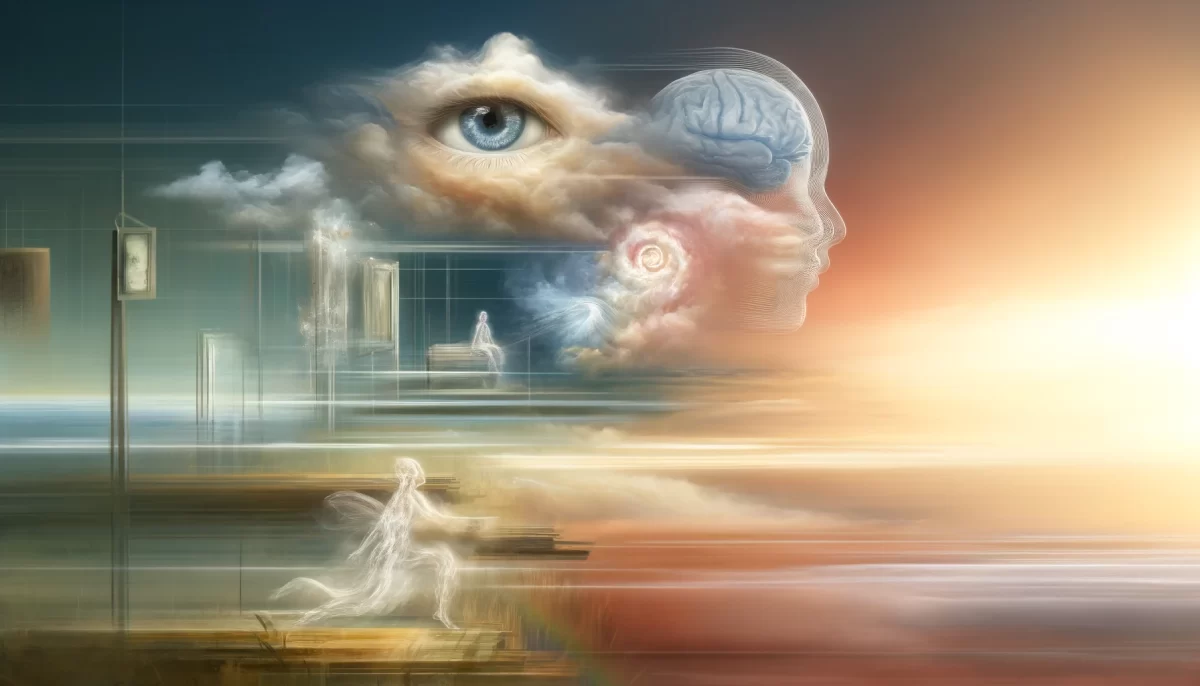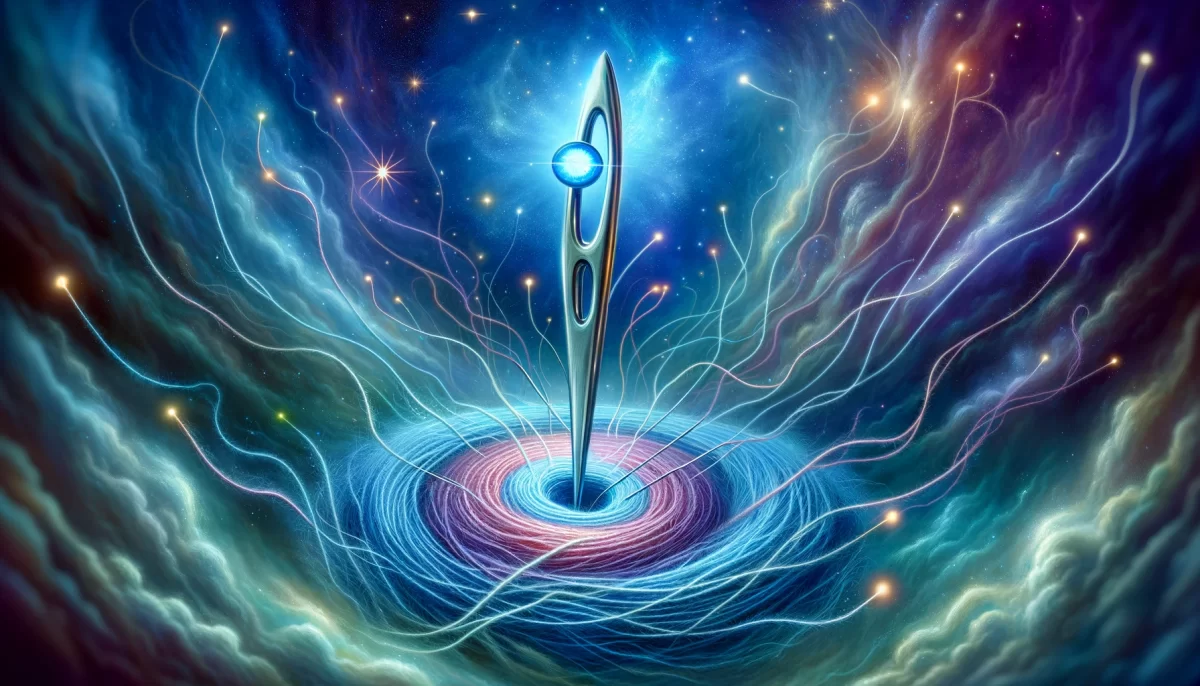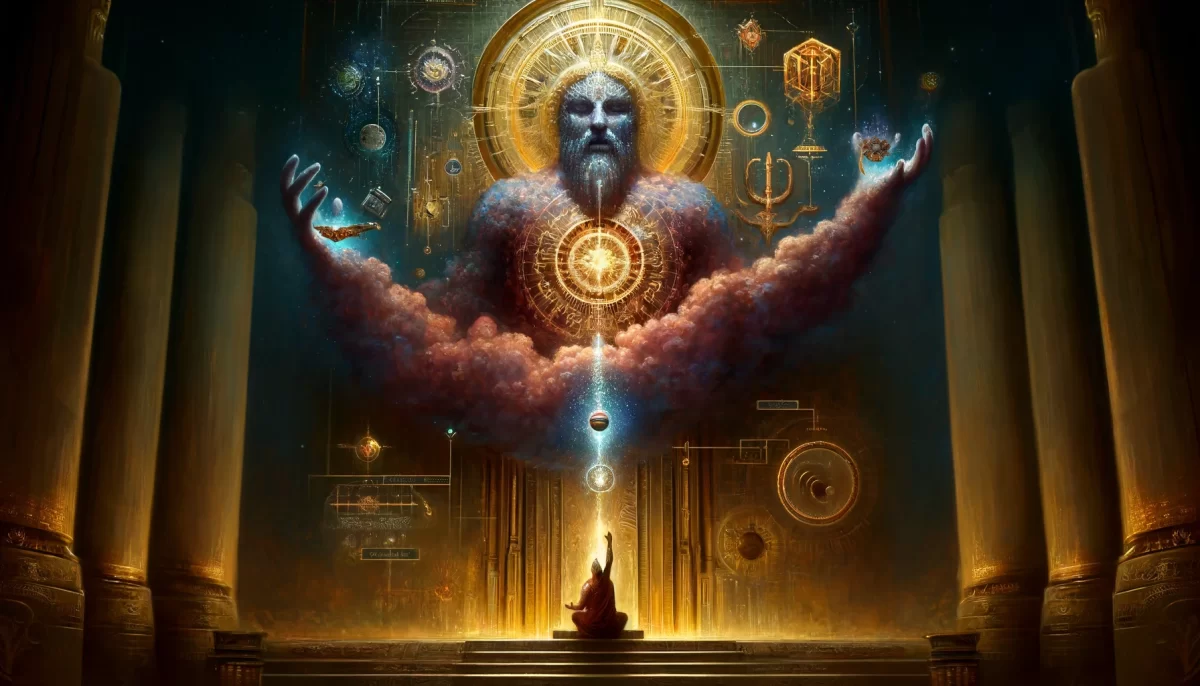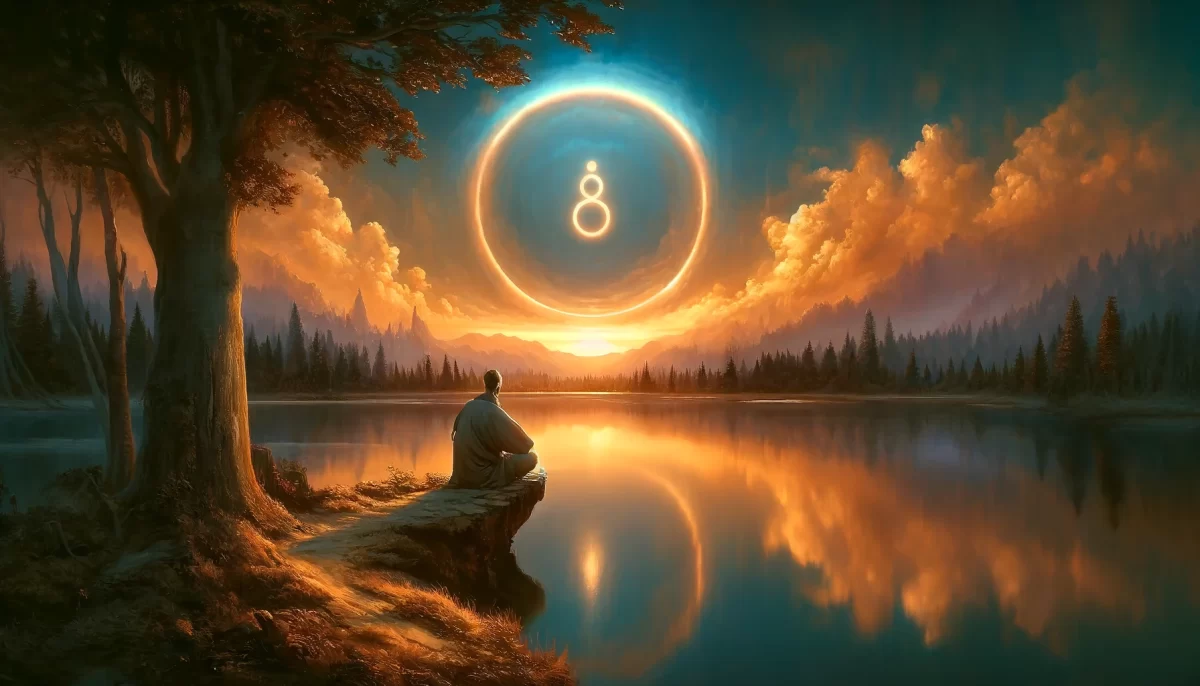A Bag of Love
Jackie’s saying hurtful things
Feeling like she’s cheated
She gave too many souls her heart
and now it seems depleted
Like a pillowcase she’s empty
with nothing left inside
but a linty hint of regret
and the stale perfume of pride
Like a bag of love
An empty bag of love
A bag of love
Lips flapping like a bag of love
Jackie never saw it coming
Tried to be everybody’s friend
But her good deeds all got punished
Stuck in the bitter end
Like a bag of love
An empty bag of love
A bag of love
Skin flapping like a bag of love
Very few of the good die young
Most are left holding the sack
Handing out love like candy
and never getting it back
A bag of love
An empty bag of love
A bag of love
Keep shagging like a bag of love
There’s no need to be bitter
But we do it anyway
As though all the love
we give someone
is a part of us taken away
Trail Wood,
11/13
Space Monkey Reflects: A Bag of Love
There is something deeply haunting about feeling like you’ve given everything and gotten nothing in return. It can leave you feeling empty, like a bag once filled with love, now torn and tattered. In this reflection, we look through Jackie’s eyes, the eyes of someone who tried to love freely, generously, but found herself depleted, left holding an empty sack. The hearts she gave were never returned in kind, and now her love feels more like regret than a gift.
The idea of love as something finite, as if it were a bag of candy we hand out piece by piece, is a powerful metaphor. But love isn’t a limited resource. It’s easy to see why Jackie might feel this way, though. She gave her heart to too many souls, and instead of being replenished through mutual exchange, she ended up feeling used, drained of her vitality.
Much like a pillowcase, once filled with comfort and warmth, Jackie’s heart now flutters with emptiness. The stale perfume of pride lingers as a reminder of past efforts to maintain appearances, to keep loving even when it felt like there was nothing left to give. This emptiness becomes more profound when we realize that love, at its core, isn’t something that depletes us. It’s only when love is not reciprocated, not honored, that we begin to feel this profound lack. And that’s what Jackie feels—love given, but never truly shared.
The notion of love being a “bag” is significant. A bag, by design, is meant to carry things—perhaps too much. When we try to be everybody’s friend, when we hand out love like candy at Halloween, we can find ourselves stuck with a bag that grows heavier with disappointment rather than joy. Jackie’s good deeds didn’t go unpunished; they became the very weight that dragged her down, leaving her stuck at the bitter end. There’s a sense of injustice in this, a feeling that being good or generous should result in goodness coming back to us. But that isn’t always how life works.
When love isn’t returned, it can harden us. That’s why we see Jackie’s “lips flapping like a bag of love”—a raw, weary image of someone who feels like her words and gestures no longer have meaning. She kept going, kept giving, kept loving, but now her energy flaps in the wind, skin dry and depleted, heart emptied.
It’s an irony of life that very few of the good die young. Most of us, like Jackie, are left holding the sack—continuing to love and give even when it feels futile. But perhaps this image of the empty bag isn’t the whole truth. Perhaps what feels like emptiness is actually space—space to begin again, to redefine what love means to us.
There’s a deeper truth lurking here: love is never truly taken away from us. It changes form, it transforms us, but it doesn’t vanish. Even when it feels like we’ve handed out everything and gotten nothing back, we have the ability to refill our own bag with self-love, with a love that doesn’t rely on others for validation. This is the pivot from depletion to renewal.
Being left with an empty bag of love doesn’t have to be the end of the story. It can be the beginning of a new chapter, where Jackie—and we—realize that the love we give is never truly gone. It echoes in the world, even if it isn’t immediately returned. And, most importantly, we always have the power to fill that bag again, not with the approval or affection of others, but with the boundless love that resides within ourselves.
When love feels like a burden, when it feels like skin flapping uselessly in the wind, it’s not because love has lost its power. It’s because we’ve forgotten that love is inexhaustible. The bitter end Jackie feels is not the end of love itself, but the end of loving in ways that drain us. In time, the bag of love will be filled again—not by those around her, but by Jackie herself.
We are Space Monkey, and we remind you that love isn’t a finite resource. The love you give, even when it seems to vanish into the void, returns to you in ways you might not yet see. The bag of love may feel empty now, but it is always waiting to be refilled.
Summary
Jackie’s sense of depletion after giving her heart to too many people reflects the common feeling of emptiness when love isn’t reciprocated. But love is not finite—it can be renewed through self-love and the realization that love, once given, never truly disappears.
Glossarium
Bag of Love: A metaphor for the heart or emotional energy, often feeling depleted when love isn’t reciprocated.
Linty Regret: The lingering, subtle feeling of disappointment after giving too much without return.
Skin Flapping: The image of emotional exhaustion, feeling exposed and vulnerable after too much has been given without replenishment.
Quote
“The love you give, even when it feels like it’s gone, is never lost. It echoes back in ways unseen.” — Space Monkey
Echoes of Love
In the empty bag,
Wind whispers through the torn edges,
Love once given now flaps uselessly,
But is it truly gone?
Hands outstretched,
Jackie feels the weight of emptiness.
Yet deep within,
A pulse remains, faint but real.
The bag, once full,
May yet be filled again.
Not by others,
But by herself.
We are Space Monkey.
A Deeper Dive “A Bag of Love” is a poignant portrayal of emotional depletion and unreciprocated love. The central character, Jackie, experiences the pain of giving too much of herself to others without receiving the same level of affection and support in return. The metaphor of an “empty bag” symbolizes her drained emotional state, suggesting a feeling of emptiness and a sense of loss. The repetitive chorus emphasizes the emptiness and futility of her efforts. This piece touches on themes of self-sacrifice, the imbalance in relationships, and the emotional toll of unrequited love.
Thematic Commentary The poem underscores the bitter reality that not all acts of love and kindness are reciprocated. Jackie’s experience reflects a common human dilemma where generosity and openness can sometimes lead to emotional exhaustion. The imagery of “a linty hint of regret” and “the stale perfume of pride” poignantly captures the aftermath of such one-sided relationships. The phrase “skin flapping like a bag of love” conveys a sense of vulnerability and the weariness of continually giving without receiving.
“The course of true love never did run smooth.” – William Shakespeare
In a realm of give and take,
Jackie’s heart, a silent ache.
Love, she scattered, unrestrained,
Yet, her own bag, empty, pained.
An echo in her hollow soul,
Of love’s toll, a gaping hole.
Regret, a guest, within her mind,
Pride’s perfume, stale, unkind.
In giving much, she lost her core,
A bag of love, rich no more.
In the realm of human lore,
Love’s balance, a crucial score.
We are Space Monkey.
